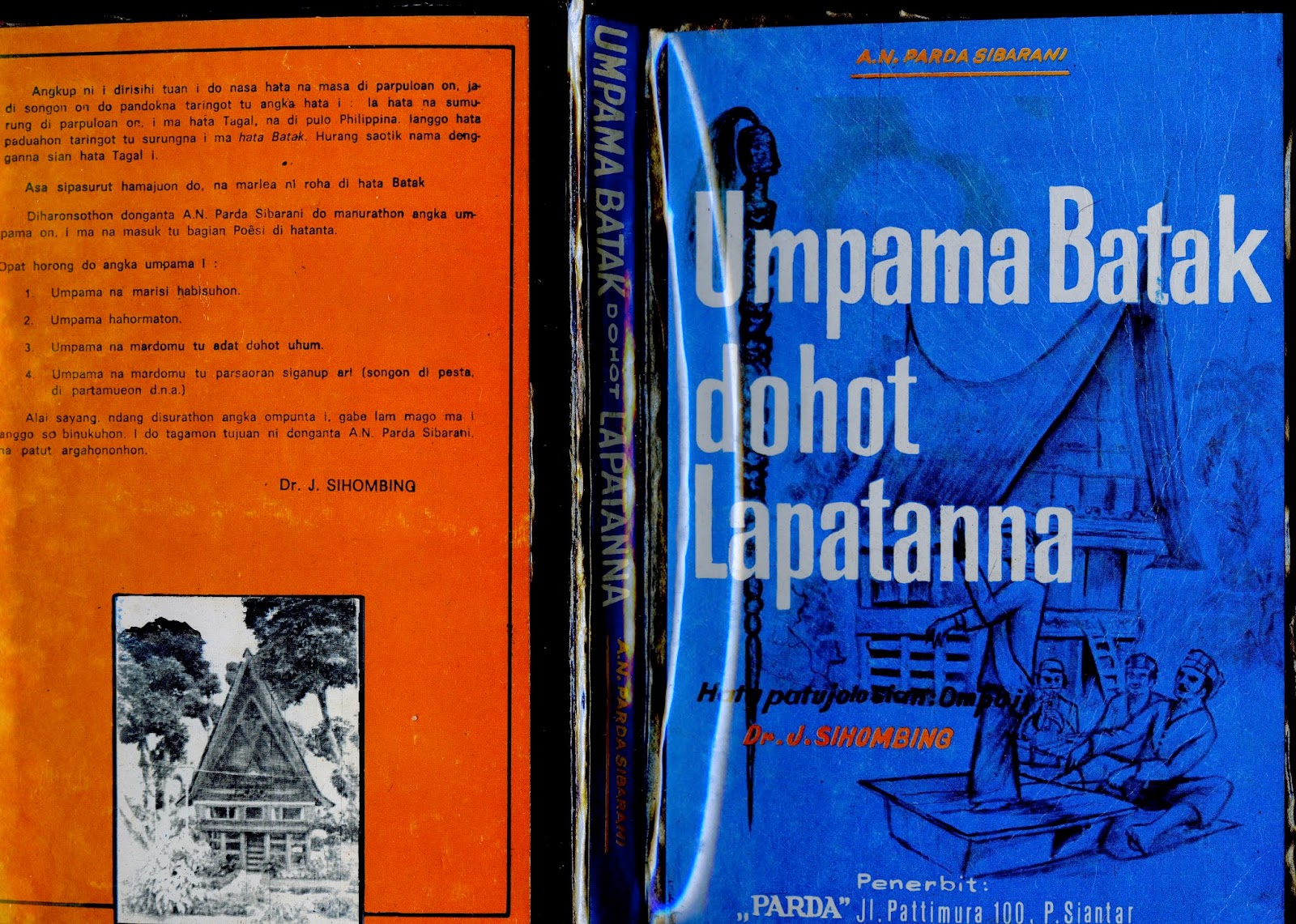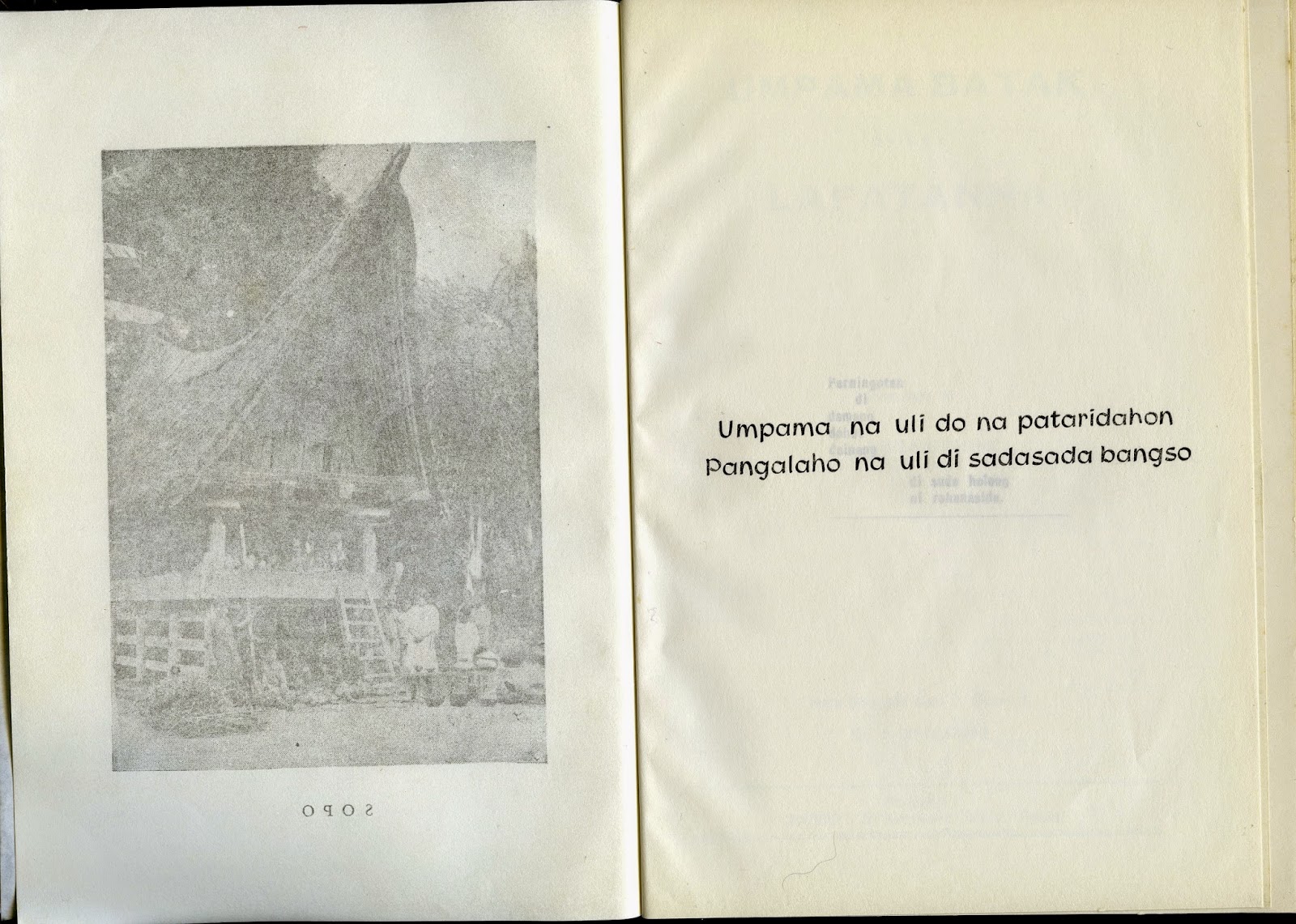 |
| Harian Boho nestled beside Lake Toba as seen from above |
A highly educated Batak woman,
born in Tano Batak but brought up outside, has sought my anthropological
opinion about returning to her homeland. The prospect is daunting to her. She
has not been there for a long time. Will she and her family be able to adapt?
Understandably, she is a bit nervous about the big move.
Maybe there are others who find
themselves in the same situation? And perhaps some who long to return to their
homeland. For you I would like to share my advice to her:
First, I would like to compliment
you. I value your choice to Pulang Kampung. I am convinced that Tano Batak
needs your presence and your influence more than anything else. I am convinced
not only that you will be able to adapt, but that you will be able to create an
important niche for yourself and your family and you will be able to do good
things for your culture.
We all know that Batak culture
has been drained. Young people who want to make something of their lives have
to leave Tano Batak to obtain an education and find a job. Villages are
emptying out. The people who remain behind feel that their contributions to the
world have no value. It is a sad and regrettable situation.
Nevertheless, Tano Batak remains
the centre of Batak traditional culture. If it is not healthy and vibrant,
Batak culture will continue to decline. The region is beautiful and unique. It
needs to be cared for by an educated and vocal population or it will continue
to degrade. For decades voices have been raised about the decline in the
quality of the physical environment. There needs to be a turnaround and soon! I
am convinced that people like you, who decide to return to Tano Batak, can turn
the tide and make the difference. Tano Batak needs to be turned back into a
home, a place that is valued, championed, and cared for. Alas, it has been the
victim of people who milk it for what it has to offer, leaving it depleted,
degraded and compromised.
I hope that you will return to
Tano Batak with the resolve to good things for the area. To my mind, this is
key.
You mentioned that you once lived
in Harian Boho. When ompu Sitor Situmorang died and was buried in his village
(January 2015), a group of artists came to pay their last respects. They spoke
about making Harian Boho a centre of artistic activities: theatre, music,
dance. Ompu Sitor’s widow, Barbara Purba, spoke about the need to set up
historical markers to remind young people in the village about their own
background and heritage. Other family members who live far away spoke about
wanting to return and care for the houses that they have left behind. There is a nostalgia, a longing, to restore
Harian Boho to some of its former glory and to start building a future glory. I
don’t know whether you will return to Harian Boho. If you do, you can be part
of this energy that links Harian Boho and its past with artists and historians
and cultural specialists who live all around the world. It is so important to
have someone like you living there who can serve as a bridge between the
worlds. You could be the spark to make the change.
If you do not return to Harian
Boho, but to some other place, I am convinced the situation will not be
radically different. In Pangururan, for instance, I am so proud of the work of
ibu Tetti Naibaho. She works with women and the church to build a stronger and
healthier community. She has taken the initiative of planting cotton so that
weavers will be able to produce their own yarn. To do this, she works with
schools and inspires weavers. One person can make a huge difference to the
lives of children and adults, and the physical and cultural environment.
You will soon be in a position to
create a lifestyle that is a model for a sustainable future, in the cultural
and the physical sense. You can provide a badly needed role model for the
people living there and for politicians who govern the area. If you do this,
you will become a community leader and a focus of admiration and appreciation.
You can ensure that you dispose of your garbage responsibly and look after your
yard and street so that it becomes a place of beauty. You can rescue and
beautify local Batak architecture. You can insist on purchasing organic produce
and thereby support local farmers who grow organic crops. You can help children
to follow their dreams and make their way into the future. You can encourage
the people to feel pride for their culture and history. Each of these tasks can
fill your life with activities and satisfaction. There are wonderful people in
Tano Batak who will work with you. You could get involved to make the new
Geopark initiative a success and the Geopark initiative could give you a focus
to invest your energy.
You will probably have more
wealth than the local people around you. Instead of spending it on useless and
wasteful displays of status, you can deploy it to create opportunities for a
better future for the community and your culture: purchase solar panels and
community computers, create jobs, protect cultural monuments, plant trees, set
up a workshop facility for adults education, assist schools, the list is
endless.
If you have time and the
inclination, I would be very grateful if you chose to work with me to encourage
the revival of Batak weaving with natural dyes and fibre and traditional
techniques. We need people everywhere in Tano Batak to begin to work on this
common goal so that Batak textiles will survive into the future.
I am sure that if you set yourself
goals and you keep a positive outlook, you will be very happy in your new
situation. It won’t always be easy. In many ways you will be doing the job that
governments should be doing. At times the work will be frustrating. And the
rewards will be in your successes but may not translate into financial rewards.
Your choices will reflect your values.
Have respect for “local
knowledge” and get to know the people as well as you can. You will learn about
your own culture. This will enrich you and your family. There is much to learn
and the process is exciting. Little projects could help you learn about the
cultural wealth in your Batak community. For example, you could work with the
people in your community to create an exhibition of photographs of the ancestors.
They all have a precious store of photographs. If you wanted, you could even
create books about the local knowledge that you discover around you. What
better way to instil pride and encourage the culture!
These are my ideas as an
anthropologist. You are a doctor and have your own training and talents. I am
sure that if you devote yourself to good projects for your community you will
enjoy your stay among your people.
Please keep in touch. I would
love to visit you and find out how your initiatives are going.
May your path be blessed.














































































































